Related Content
Content
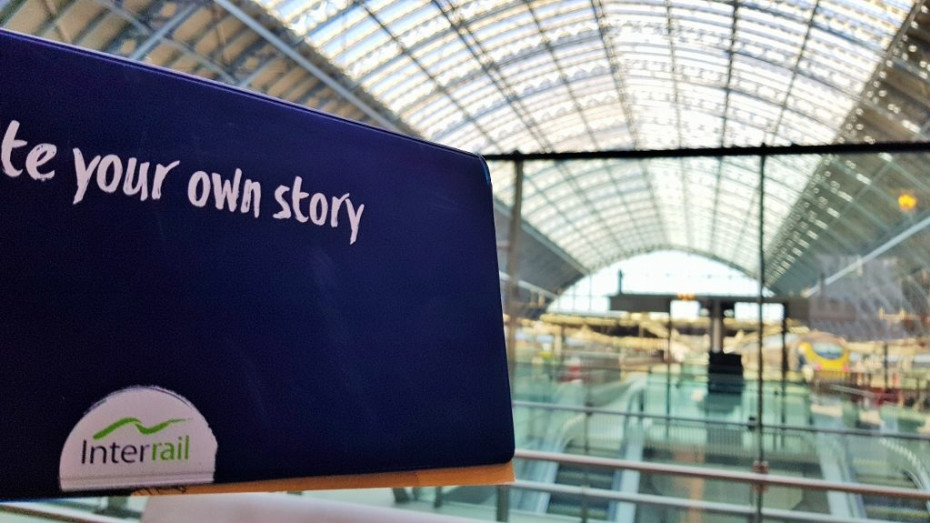
How to use Eurail and InterRail to see Europe by train
A guide to using rail passes with practical info and tips from travellling more than 30,000 km with InterRail!
Share
Welcome to ShowMeTheJourney's guide to using Eurail and InterRail passes, which comprises info and insights gleaned from using rail passes to travel on 84 days around Europe by train!
So take 10 -15 mins to discover how to save money and be less confused, so that you'll have an easier and hopefully more wonderful rail adventure.
An Introduction to Eurail and InterRail passes:
Eurail and InterRail passes are an alternative to using tickets when travelling on the overwhelming majority of train services in or between these 33 countries:
Austria, Belgium, Boznia- Herzegovina, Bulgaria, Croatia, Czechia/Czech Republic, Denmark, Estonia, France, Finland, Germany, The UK, Greece, Hungary, Ireland, Italy, Latvia, Lithuania, Luxembourg, Montenegro, North Macedonia, Norway, Poland, Portugal, Romania, Serbia, Slovakia, Slovenia, Spain, Sweden, Switzerland, The Netherlands and Turkey.
So you don't need to buy tickets once you gave the pass, though when travelling on some train services, pass users need to book seat reservations prior to boarding.
The key difference between Eurail and InterRail passes is that to be able to purchase and use an InterRail pass you need to be either a European citizen or a legal resident of a European nation – note that it doesn’t matter whether a particular country is a member of the E.U or not.
Citizens of non-European countries can purchase and use Eurail passes and ShowMeTheJourney particularly recommends taking a look at this guide to using Eurail passes.
There is now very little difference between how Eurail and InterRail passes can be used; hence virtually all of the info and suggestions on this guide apply to using both types of pass.
Though a fairly new innovation is that InterRail users can now use their passes in their home countries to travel over its borders, on any two days (one outward and one return trip) during the time that their pass is valid for.
In this guide ShowMeTheJourney is going to focus on the less obvious aspects of using these passes.
The best source of the practical information about each pass are the Eurail and InterRail websites; though Seat 61 has an excellent summary here.
Pricing:
The Eurail and InterRail pass prices are now similar too; which has resulted in significant reductions in the cost of Eurail passes in recent years:
- the prices of Eurail passes that can be used in all 33 countries listed above,
- the prices of Eurail passes that can be used in one country or Benelux and Scandinavia,
- the prices of InterRail passes that can be used in all 33 countries listed above.
- the prices of InterRail passes that can be used in one country or Benelux.
ShowMeTheJourney is specifically not listing the prices on this guide, because both Eurail and InterRail offer frequent price promotions.
Also once booked you then have 11 months in which to activate the pass and take your first journey, so you can grab a good price and then travel at a later time which suits you.
Who can use Eurail and InterRail:
Whenever, I return from a rail pass adventure people will express surprise at my exploits, some wonder why on earth I wanted to do it (ahem), but a more common reaction is "but, you're not a student"?
However, anyone can buy a Eurail or InterRail pass.
Special Eurail Youth and InterRail Youth prices are available for those aged 27 and under; good news if you are 26 or 27, the cut off age for the cheaper youth rate had been 25 until a few years ago.
Those fortunate enough to be aged 60 and over can also purchase passes at a permanently discounted rate!
Though if you will be using a Senior or Youth Pass on a train with mandatory reservations, the reservation charges won’t be discounted.
Children aged 4-11 need their own Eurail and InterRail passes, but they're free! (two children per adult)
Though if you will be travelling on trains on which seat reservations are mandatory, there won’t be any child rates for those reservations.
It takes less than five minutes to buy a pass that suits you; though before you do so, we unsurprisingly recommend taking a look at the suggestions of how to plan a Eurail or InterRail holiday.
The different types of pass explained:
The offering of both Eurail and InterRail passes is based on three factors:
- the number of countries you will be travelling in;
- the number of days you will be travelling by train;
- whether you want to travel in the equivalents of 1st and 2nd class on the trains.
All of Europe or just one country by train:
If you want to travel in multiple countries, you can choose to book a somewhat confusingly named ‘Global’ type of pass and it will be valid in all of those 33 countries listed above; AND on the international trains which travel between them.
OR choose to travel solely within 27 of those countries (there's a pass which covers Benelux = Belgium, The Netherlands and Luxembourg).
The number of travel days:
It’s not possible to purchase bespoke Eurail and InterRail passes specific to ANY number of days you wish to travel by train, but there is a wide choice of set travel periods available; from four days to three months.
The periods of time have two core differences in terms of the passes that are offered.
- Passes which can be used on a number of days within a fixed period of time, such as travelling on five days within a month.
- Passes that are valid for consecutive days of travel, though you don't have to travel on every day for these passes to be value for money.
Less than 15 Days:
If you want to travel on 15 days or less then the pass will be valid on a specific number of travel days within a set period of time, for example there is a pass that can used to travel on any 10 days within a two month period.
You have total flexibility to choose your dates of travel, you simply write them on the pass - an overnight journey only uses up one day of your allowance.
The other flexible factor with this type of pass, is that within the period of time your pass is valid for, you don't have to use it on all the days/nights when you will be taking a train.
On days which you will be travelling comparatively short distances, it can pay off to buy tickets on those days instead.
You can then save that day your pass is valid for another day of long distance travel.
15 Days:
There is a choice of either a consecutive 15 day pass, which is cheaper, or a pass which covers 15 days of travel within a 2 month period.
More than 15 days:
OR if you want to travel on 15 days or more, your pass can be used on ANY number of days, within the period of time that the pass is valid for.
For example if you book the pass valid for '22 Days' you could use it for 22 consecutive days of travel within the 22 day period of time
Though you don’t have to use this type of pass on every day that it is valid, to ensure that is value for money, so using a pass valid for 22 days for only 17 days of travel can still pay off.
Also when considering how many travel days you will require, keep in mind the potential for making day trips by train from the locations in which you’ll be staying.
Note that InterRail and Eurail passes are not sold on a per journey basis, a 15 day pass is valid for 15 days of travel and NOT for 15 journeys, the number of journeys you take per day of travel is up to you.
Mobile or Paper passes:
When booking the majority of Eurail and InterRail passes you can now opt to use a paper version of the pass or a mobile version.
The paper version of the pass is in effect a ticket, so you'll need to take it with you on every journey and write the details of the journeys you will be taking on the pass.
The mobile version is stored within your phone.
The mobile and paper versions have numbers which are unique to the pass you have been issued with.
A key difference between them
Mobile passes can in effect be re-issued if your phone is lost or damaged during your trip, because it can re-downloaded to another device.
However, paper passes are not re-issued, so if you lose it during your trip, you will have to buy a replacement.
Using mobile passes:
A key feature of mobile passes is that you add to it the journeys you wish to take - in effect the info on the pass must match the train you will be travelling by; and the conductor on the train will verify this.
It's very much better to add a journeys when you're at the station in the minutes prior to boarding - or if you are taking a train from a station without ticket barriers, you can add it as soon as you are on board.
This matters, because if you add / lock-in a specific departure / route ahead of your travels and then arrive at the station to find that the train is not available due to a technical fault or a strike by railway staff, you can't then 'transfer' this train to another travel day.
So this particularly impacts on using the passes valid on a specific number of travel days - because if you in lock-in the travel days ahead of commencing a journey / itinerary, you will have in effect fixed your travel dates before you set off,
Meaning in this scenario, that you can't then spontaneously stay for longer in a location, or more crucially travel on a different day/date due to strike action etc.
With paper passes, if you have written a train into the train travel log, you can just cross it out and write in an alternative.
If a train requires a reservation, you can purchase it separately, from months ahead of the travel date, without having to add the journey to the pass - and if you need be you can transfer the reservation to the alternative train you will now be taking; subject to the alternative train not being sold out.
How the type of pass impacts on making reservations
When you book a paper or mobile pass you will have access to either the Eurail or InterRail Rail Planner services, which you can use to see which trains/routes will be available between your destinations; And it will also flag which trains require mandatory and optional reservations.
You will also have access to the Eurail or InterRail reservations services, which you can use to book most* mandatory or optional reservations, though when using this service you will be charged a booking fee of €2 per reservation, per person.
*Non-Eurostar trains in Great Britain, plus trains in Bulgaria, Finland, Greece, Ireland, Portugal, Serbia and Turkey are among the exceptions.
Regardless of whether you opt for the mobile or paper passes there are alternative methods of obtaining reservations on many specific train services - See the reservations notes below.
However, on some of these booking options, you can only use the type of pass number issued with paper passes.
So Eurail and InterRail have come up with a number generator, which purchases of mobile passes can use to create a 'paper pass number' when required.
Eurail mobile pass purchasers can use this pass number generation service and InterRail mobile pass purchasers can use this pass number generation service; you enter your mobile pass number, so that you'll also then have a paper number.
So when using a mobile pass, if a third party service tells you that you have used an invalid number, you can use these number generator links to obtain an alternative paper pass code, which should then work.
All of the links you'll need and more info are included in the guide to using the passes in 15 popular countries.
First or Second Class:

Aside from the comfort of the seat and general ambience on the train, these six other factors are also worth keeping in mind when considering whether to travel in First Class or Second Class.
(1) Using 1st class passes tends to offer better value for money (see below) against booking tickets, particularly if you will be using a pass valid over a longer period of time .
You can confirm whether a 1st class rail pass will be better value by using the Concierge service.
(2) On trains which don’t have mandatory reservations you’ll be more likely to find spare seats available in 1st class; I have only ever boarded one train with a 1st class pass on which I couldn’t find a seat
(3) If you’ll be making a scenic journey on a train with no mandatory reservations, you’ll be more likely to find a seat on the side of the train, which has the pick of the views.
(4) In France 1st class passes are particularly good value because the reservation fees are the same on the TGV (InOui) trains and the Intercités trains irrespective of whether you have a 1st or 2nd class pass.
(5) In Italy if you travel with a 1st class pass you pay the same reservation fees as 2nd class pass users to travel on the fabulous Frecce trains.
But a 1st class rail pass reservation entitles you to travel in the enhanced luxury of Business Class; on my two most recent 1st class rail pass journeys in Italy I saved a total of more than €150, compared to the ticket price.
(6) In First Class the provision for storing luggage tends to be more generous; and managing your bags can be the most awkward aspect of pursuing a rail pass adventure.
Reservations:
Seats on Day trains
The type of daytime train service you will travelling by matters when using Eurail and InterRail passes.
Those who have booked tickets on some European express train services will receive a complimentary seat reservation.
The train operators can’t then risk rail pass users sitting in those seats, so you need an assigned seat too, on a train that will be fast and fabulous.
Hence rail pass users have to pay a fee for these mandatory seat reservations, most of which typically cost €3 - €10; and guaranteeing a seat will also be a big factor in ensuring a long journey will be pleasurable.
Though users of InterRail and Eurail passes don't need to pay any additional fees (seat reservation costs) on the overwhelming majority of European daytime rail services.
These includes including all journeys by national express trains within Austria, Belgium, Britain, Denmark, Luxembourg, The Netherlands, Switzerland and Germany,
Plus users of 1st class passes don't need to pay any fees in Ireland and Norway; and only one type of train service in both Czechia and Poland have mandatory reservation requirements.
On some other European express trains when using Eurail and InterRail passes, you can can opt to pay a reservation fee to ensure that you have a seat.
These trains with optional reservations include
- the EC, IC and ICE express trains within Germany and to and from Switzerland
- on the EC, IC and ICE express trains between Germany and Austria, Belgium, Czechia, Denmark and The Netherlands, except when travelling between June 1st and Sept 1st.
- on Railjet trains in Austria and Czechia, except for journeys to and from Italy
- on long-distance trains in Great Britain, rail passes can arrange optional seat reservations without paying a fee.
Night trains
Using Eurail and InterRail to travel by overnight trains is a different scenario because rail passes only include journey costs and NOT the reservation charges for a bed in a sleeping cabin or a bunk in a couchette.
The charges for beds in sleeping cabins can often be more than €100 - for solo travellers the reservation fees for sole occupancy of a sleeping can be more than €400!
Though on most overnight trains travelling in a seat is an option; and when they are available reservation fees are typically charged, but the cost is typically less than €10.
Booking reservations
Eurail pass users can access the Eurail reservation service and InterRail pass users can access the InterRail reservation service and fees are charged, in addition to the reservations costs, of €2 per booking, per train.
Though train services which can't be booked include non-Eurostar trains in Great Britain, plus trains in Bulgaria, Finland, Greece, Ireland, Portugal, Serbia and Turkey are among the exceptions.
Though something to watch out for is that these services have two functions:
(1) Before you book a pass they are in effect a reservation price guide per departure; if a reservation is mandatory it will show its cost, even though you haven't logged in.
(2) However, once you have a pass and can log-in, you will then see the price and the actual availability per departure.
This matters, because if you use the services at the trip planning stage, you can't assume that the reservations for the trains will actually be available, once you have bought a a pass and can log-on.
Reservations can sell out weeks in advance on specific departures, particularly when:
- travelling by Eurostar (see below),
- travelling in sleeping cabins on night trains; the availability on Nightjet trains can be looked up on OBB.
- on any express train on the days either side of national holidays,
- when travelling by TGV trains in France and other high speed trains to/from France, particularly on Fridays to Sundays in Summer; see the notes on the guide to using a pass in France, for how to check the availability before you purchase a pass.
Booking with RailEurope
RailEurope now sells rail pass reservations on most daytime trains without charging any booking fees, a notable exception are the high speed trains in Spain,
The steps to take are:
- On the RailEurope home page above the Search button, there is an 'Add rail pass' button.
- When clicked you can select the type of rail pass you will be travelling with.
- Then look up the journey, as when booking tickets.
- The prices you will see on the search results is the price of the rail pass reservation.
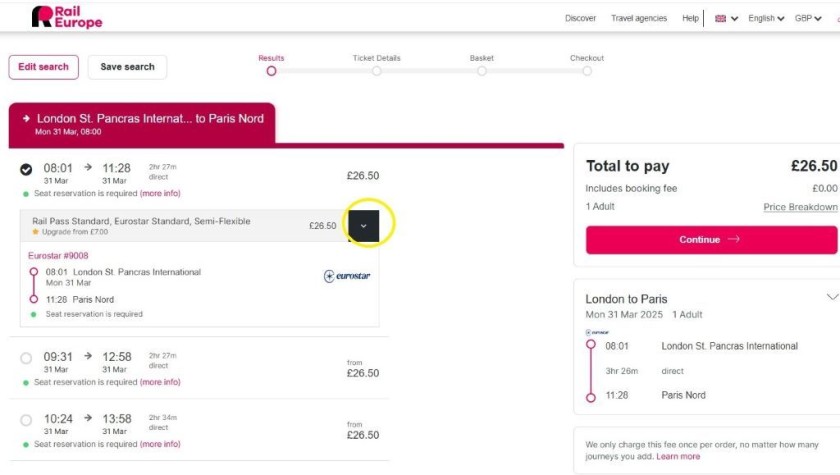
Though if you will be travelling with first class Eurail or InterRail passes, there is a quirky aspect of using RailEurope to book reservations on certain services - including the Eurostar trains from and to London.
Namely that despite having selected that you will be using a first class pass prior to looking up a journey, the reservation which will be initially shown on the search results, will be a reservation / price for travel in 2nd class / Standard Class.
So you will need to be proactive and use the drop down arrow in order to access the first class 'Standard Premier' reservations - Though this is subject to availability, if the first class reservations are sold out, you won't see the arrow.
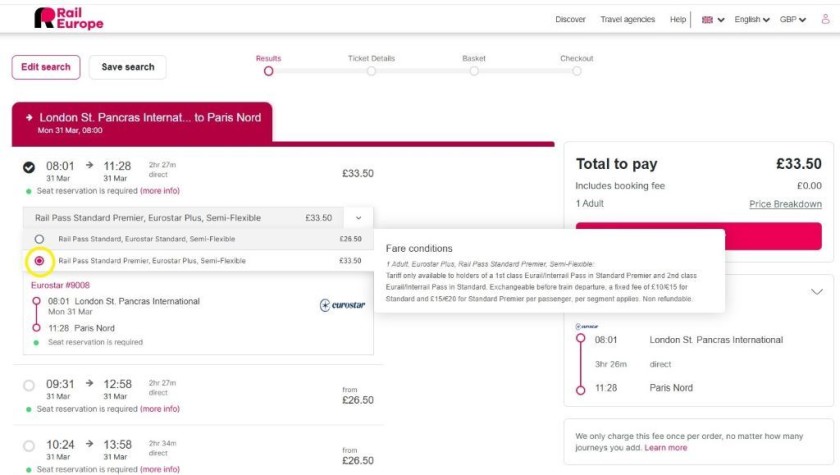
Having clicked the arrow you will typically see the 1st class reservations below the 2nd class reservations; So take care to select the 1st class 'Standard Premier' reservation - and then proceed with the booking.
Booking with Happy rail
Dutch rail booking service Happyrail can also sell rail pass reservations on many European train services are on which reservations are optional or mandatory for rail pass users.
Unlike RailEurope it charges a booking fee, but its fees tend to be cheaper than those charged by the Eurail and InterRail reservation booking services.
The services with mandatory reservations which can be booked on Happyrail include:
- Nightjet trains
- Spanish trains
- the AVE trains between Spain and France
- all types of Frecce trains in Italy
Note that HappyRail does not (yet) sell rail pass reservations for travel by Eurostar, Lyria, Thalys or TGV services.
Booking direct with train operators
Many websites provided by the national rail operators also enable Eurail and InterRail pass users to book reservations online ahead of a trip:
- for journeys within and to/from Austria by day and night trains - on the Austrian railways website, OBB
- for journeys within Italy and between Italy and Switzerland - also available on the Austrian railways website, OBB
- for journeys within and to/from Czechia by day and night trains - on the Czech railways website, CD
- for journeys within and to/from Germany by day trains (not to/from France and Poland) - on the German railways website, DB
- for journeys within Sweden - on the Swedish railways website, SJ
- for journeys by Eurostar and Eurostar formerly Thalys trains on B-Europe - managed by the Belgian national rail operator.
- for journeys by TGV train within France on a separate B-Europe service.
- for journeys within Norway on its national travel booking service, Entur.
on Eurostar from and to London
Reservations for Eurostar trains can now be booked up to 6 months ahead of the travel date.
The ticket prices for Eurostar trains are placed in tiers and when the lower priced tiers have sold out, so only the top two most expensive tiers are still on sale, rail pass reservations won't be available
The prices in the cheaper tiers will will inevitably sell out faster on the most popular departures - and it's these trains which inevitably have the best connections in Bruxelles, Lille and Paris for travel to and from more distant destinations.
So rail pass reservations can become unavailable on specific departures weeks ahead - And even months ahead for travel in June to August, and around holiday dates at other times of year.
Hence, particularly in summer, it can be a good idea to maximise the flexibility of making a successful booking, by arranging an itinerary so that Paris, or a city in Belgium, will be the finish or start points for a travel day,
This is because it's seemingly rare for every Eurostar to have rail pass reservations unavailable on on a travel date, as it's more common for evening departures to still be bookable.
Or if reservations are still available for London ↔ Lille journeys when London ↔ Paris isn't available, an option is to book the Eurostar reservation to or from Lille - and then take other trains between Lille and Paris.
Confirming Availability
If you will need to travel by a specific Eurostar departure, you'll want to check that rail pass reservations are available for the train you need to take prior to buying a pass
The availability can be looked up on RailEurope and B-Europe without the need to already have the pass numbers that are assigned when buying a Eurail / InterRail pass - though you will need a pass number to go ahead and book.
Also avoid thinking, 'great I can see the reservations, so I'll book the pass now and go back to RailEurope or B-Europe tomorrow' - because at busy times the reservations can become available by the time you go back online.
Worth knowing is that before you have a pass, the function of the Eurail and InterRail 'timetable' tool is to show which departures require a reservation.
The timetable tool / online reservation service will only show the actual availability per departure, once you have purchased a pass, received a pass number and can then log-in.
Therefore before you have a pass, so can't log-in, the InterRail/Eurail websites will tend to show seats as available on every departure, so don't assume that is the situation.
The key thing is to avoid buying a pass and assuming Eurostar reservations will be available, and then discovering that they aren't on the train you need to take.
on the TGV trains between France and Spain
The number of seats available for Eurail and InterRail pass users on the TGV trains which take the Paris - Nimes - Montpellier - Perpignan ↔ Figueres - Girona - Barcelona route is limited, regardless of how many tickets are sold per departure.
And now that bookings open for these trains six months ahead, it's possible for the rail pass reservations on a specific departure to sell out months in advance of the travel date, particularly when travelling between May and September.
The alternative is to take regional trains on either side of the border and make transfers between trains in Cerbere or Port Bou.
Summer travel
It has been evident in recent summers that trains on some routes with mandatory reservations were selling out earlier than usual, particularly on popular routes to holiday destinations in July and August.
Because many trains were already fully booked by ticket purchasers, this inevitably impacted on the availability of the reservations available to Eurail and InterRail pass users.
This situation is outside the control of Eurail/Interrail, it doesn't set timetables or ticket / reservation allocations.
The situation can be particularly acute on Saturdays on departures before 15:00, so avoid that day if possible or plan routes so that you can travel later in the day.
On the high speed routes between Bruxelles, Lille, Paris and destinations in southern France; and on the trains between France and Barcelona, if you have to travel on a Saturday be open to the possibility of alternatives to taking direct trains.
Check if reservations are available on TGV trains to Lyon, Marseille or Montpellier and then continue a journey by TER trains, on which advance bookings aren't available to non rail-pass users.
Will using Eurail or InterRail save money?
At the risk of stating the obvious, whether you will or won’t save, depends on how use your pass.
So be wary of articles and comments with a subject of ‘I travelled to these five cities and I could have saved €100 if I’d bought tickets for each of my five journeys instead’.
It will be correct, but it’s possible that the author could have saved money, if they had travelled to five other more distant destinations.
These SIX factors come into play in the value for money equation.
1. How far you will be travelling:
What matters in particular is the average distance you will be travelling per day, if you will be using a pass valid for the shorter periods time - and will only be taking one or two trips of five hours or more, then it's less likely that Eurail / InterRail will be good value.
Conversely, if you will only be taking a very long-distance journey involving trains provided by multiple operators, the passes can be a cost effective and less restrictive alternative to booking rail tickets.
Despite the mandatory seat reservation fees, which pass users have to pay on some trains, InterRail and Eurail prices typically compare favorably against the prices of the more flexible types of ticket - which, in effect, enable a choice of trains when disruption occurs.
2. How long your pass is valid for:
The longer the period of time your pass is valid for, the less distance you have to travel per day, on average, for a pass to become value for money.
This distance and time equation is explored in more detail on the itinerary planning guide.
3. When you will be travelling:
Most European express train operators apply airline style pricing, meaning that train ticket prices will be more expensive at times of high demand.
Those very cheapest tickets might not be placed on sale at all on trains that are likely to be popular.
But these typically more expensive travel periods, such as the summer and festive holidays, will also coincide with when you’ll be most likely to be using a pass.
An often overlooked plus of rail passes is that the prices aren't seasonal, so they don’t rise in the summer, during school holidays, over Easter etc.
4. Where you will be travelling:
Train travel costs are cheaper in Eastern Europe, so rail passes are less likely to save you money if your trip MAINLY involves travelling through countries such as Bulgaria, Czechia, Hungary, Poland and Romania.
Though conversely if you use your pass on comparatively expensive journeys, such as some Swiss mountain railways, on which Eurail and InterRail passes can travel for free; then that can help tip the balance towards a rail pass being good value for money.
5. How far ahead that you’ll be booking a pass:
European train operators tend to offer limited numbers of heavily discounted tickets for journeys by long distance express day and night trains, including all high speed trains and all international express trains.
These bargain-priced tickets will be placed on sale 1 – 6 months ahead of the travel date, with 3 -4 months ahead being most typical.
So if such tickets are still available when you’re planning your journeys and considering whether a pass is a good deal, it’s less likely that a rail pass will save you money - though you will know for sure whether a pass will be the cheaper option if you make use of the Concierge Service.
Though keep in mind that the greater the ticket price saving, then the less flexible the terms of using the ticket will be, because discounted tickets can only ever be used on the specific train departure you select when booking.
Unless you take out bespoke travel insurance, you will be out of pocket if you miss such a train because of illness, a flight delay, not being at the station on time etc.
Before you commit to a pass, work out the COST PER DAY of using it and then look up the prices of some of the journeys you’re considering, by using the ticket booking links on our journey guides.
Check the advance ticket prices for when you’re thinking of making the journey AND the prices only a few days ahead - or ask the Concierge Service to do this for you.
If you’ll be travelling far enough per day, it’s almost certain that a rail pass will enable you to make big savings compared to the cost of purchasing last minute tickets.
6. The trains you travel by:
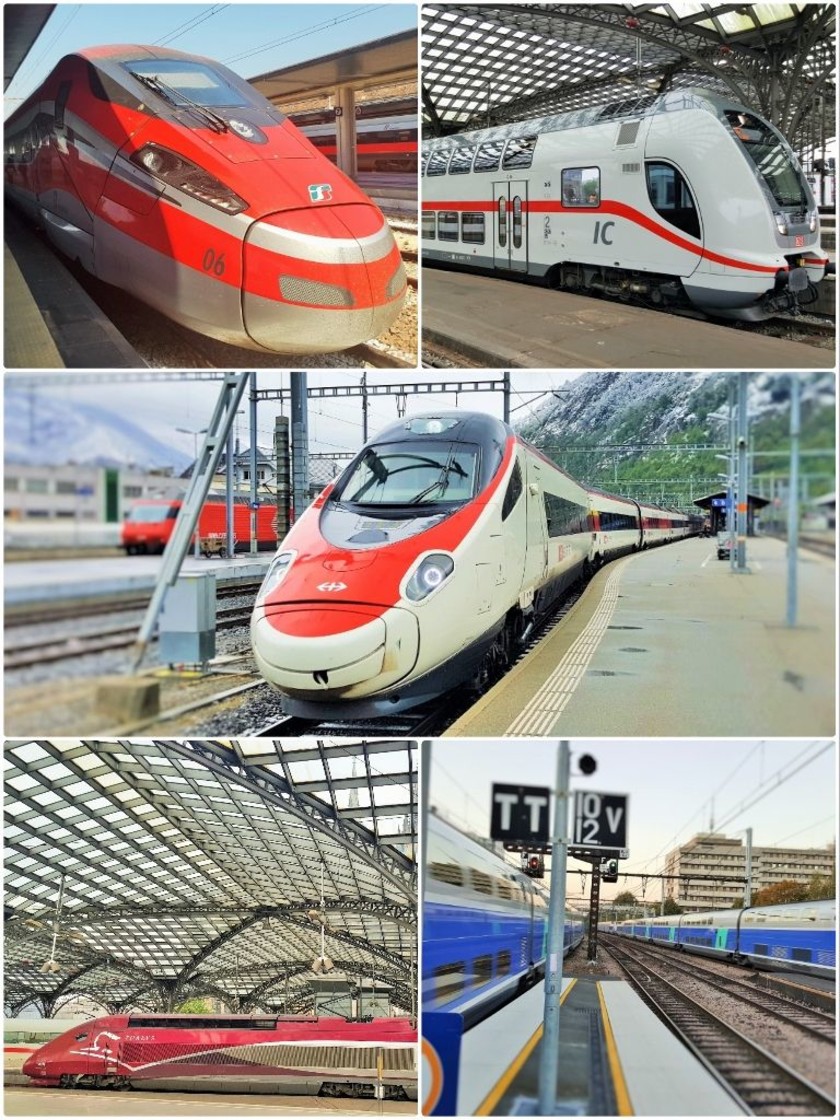
Travelling long distance by many of the trains with mandatory reservation fees can be good value for money; the daily cost of using a pass + the reservation fee can be more than 60% less than the cost of last-minute tickets.
Though on a few international high speed services, including these services to and from France; TGV -Lyria, Eurostar, the TGVs to/from Spain and TGV France/Italy - the particularly expensive rail pass reservation fees do mean that rail pass users seeking value for money, should avoid those trains.
Here are some alternative journey options which avoid taking trains with particularly expensive rail pass reservation fees.
Though avoiding the mandatory fees of €10 and under by travelling long-distance by alternative regional trains and/or cross-border local trains, may not be good value for money when travelling during the day with an Eurail or InterRail pass.
That's because it's possible to travel long-distances on such trains for less than the cost per day of using a pass.
This is broad advice, but in SMTJ's experience, to extract maximum value from Eurail or InterRail, it's best if your overall itinerary includes:
- long-distance journeys by trains which don't have mandatory reservations; realize that's stating the obvious
- paying the mandatory fees when they are under €10-15
- taking alternative slower trains when the fees are more than €20
Or if you have pass restricted to a set number of days and you can find the cheaper ticket prices on the TGV -Lyria, Eurostar formerly Thalys, the TGVs to/from Spain and TGV France/Italy trains, book those tickets and use your pass for other days of travel.
Though you will be less likely to save if you mainly want to travel around Europe in the sleeping cabins on overnight trains
Also the prices for the reservations that we include on ShowMeTheJourney, deliberately don’t include the booking fees, because as pointed out here, it’s often possible to avoid paying these additional booking charges.
Some cost comparisons when using 10 day passes:
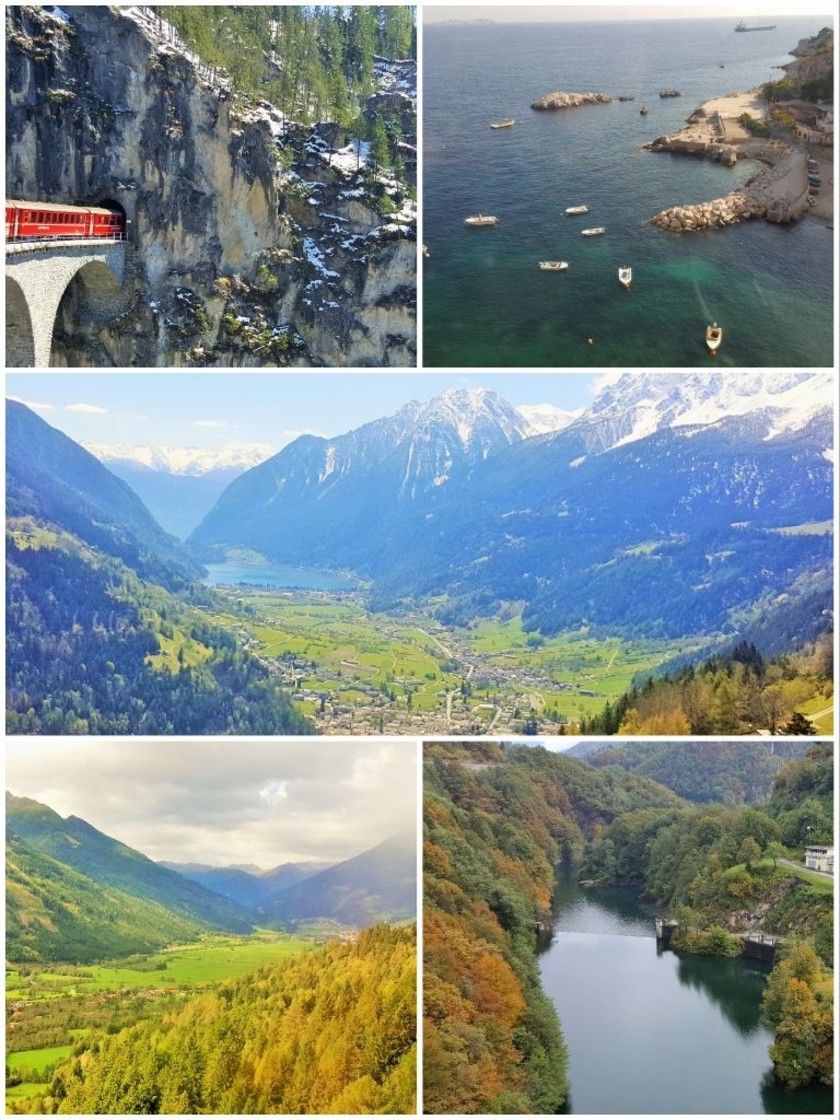
ShowMeTheJournney has put together six rail pass itineraries ('Direct Trains' has two itineraries) for Eurail and InterRail passes valid for 10 days and to be honest, aside from the itinerary based on paying no additional reservation fees, the cost consideration wasn’t a primary factor.
Instead the focus was on the destinations and making the train journeys between them as easy or as spectacular as possible.
Each journey on those itineraries was then looked up to check:
- the cheapest possible adult ticket price that could be found for sale,
- the price if an adult was to book those journeys a couple of days ahead.
Then these were compared with the total rail pass costs of taking each itinerary = the standard non-sale price of the pass + the reservation fees for the trains we included (+ the costs of taking some additional journeys not covered by a rail pass).
On average over the six itineraries:
Compared to booking the cheaper discounted tickets, the types of rail pass valid for 10 days were:
- 1st Class Adult = 10% cheaper
- 2nd Class Adult = 11% more expensive
- 1st Class Youth = 27% cheaper
- 2nd Class Youth = 9% cheaper
Compared to booking tickets only a couple of days ahead, the types of rail pass valid for 10 days were:
- 1st Class Adult = 43% cheaper
- 2nd Class Adult = 37% cheaper
- 1st Class Youth = 54% cheaper
- 2nd Class Youth = 50% cheaper
(Adult passes are the passes that can be purchased by 28 – 59 year olds, Youth Passes can be used by those aged 12 - 27).
Arguably not the most comprehensive of surveys, but IF you’ll be travelling for 10 days, the four broad conclusions are evidently;
(1) If you are 28-59 and want to travel 2nd class AND are able to track down the cheapest tickets AND are prepared not to be able to change your travel plans - you’ll usually make a saving by booking tickets instead of a rail pass.
Though a pass will definitely save you money if you follow this itinerary.
(2) If you meet the Youth Pass criteria, you will likely save money regardless.
(3) 1st class InterRail and Eurail passes are particularly good value for money if you meet the Youth Pass criteria.
(4) If you book a rail pass only a couple of days ahead of your travel dates, you WILL be making a substantial saving.
Not yet convinced? Well SMTJ has some further money saving tips.
Other good reasons for using rail passes:
Whether travelling with Eurail or InterRail passes will save money against the ticket costs, isn't the only factor worth considering when deciding whether rail passes are the best option for your trip.
I once opted for a 5 day InterRail pass when it was €30 more than the costs of the tickets, because I decided that the other benefits of using the pass, meant that it was still value for money.
1. Using passes can be a time saver:
There are multiple instances in which using rail passes will save you time and I'm not talking about using trains that are faster than others.
Before you set off:
So you’ve worked out that you can save money by booking separate tickets per journey, you’ve even discovered this fantastic website (ahem), which directs you to all the optimum websites on which you can book ticket(s) for each journey.
But now you have to look up all your journeys up to make the bookings – which will take a while, particularly if you want to hunt down those best deals.
The point being that it will take a lot longer to look up and buy separate tickets than it would to buy a rail pass online.
It takes less than five minutes to buy a pass that suits you – though before you do so, we unsurprisingly recommend taking a look at our rail pass holiday planning guide.
At the station:
There is a counter-argument that if you’ve booked in advance for a ticket to travel by a train on which rail pass users have to reserve, then at the station you can breeze pass the Eurail or InterRail pass users, queuing at the ticket counters to make their reservations.
Trust me, this will be the exception rather than the rule, in fact I’ve only spent more than 15 mins in a queue to book a rail pass reservation twice (in Bern and Milan for EC trains between Switzerland and Italy).
See SMTJ's advice HERE for how you can also minimize the time you’ll take to book your rail pass reservation fees.
And when you’re using an InterRail or Eurail pass to hop around multiple places per day in smaller countries such as Austria, Belgium, Denmark, Luxembourg, Switzerland or The Netherlands – my favourite method of putting a rail pass to good use, the reverse scenario is true.
You’ll be the ones breezing on to the trains, while those without passes are in the travel desk queue, or trying to figure out the ticket machines.
2. The scope for spontaneity:
Arguably the biggest tick in the box for using a rail pass isn’t whether it will or won’t save you money, it's the freedom to undertake spontaneous journeys - to take that longer, but more beautiful route because the sun is shining etc,
Even when I’ve worked out that buying separate tickets will have been cheaper, I’ve still opted for a pass, in order to have some flexibility over a choice of route and selecting departures.
Because some of the most prestigious European daytime trains and all overnight trains, require reservations before boarding, there is now a school of thought that the care-free spirit of adventure, which used to be synonymous with rail passes, has been diminished.
It's also true that travelling by express trains in certain countries isn't compatible with spontaneity, in France you'll save by booking reservations in advance and in Spain, the trains can be particularly prone to selling out.
However, with an InterRail or Eurail pass you can still hop on and off virtually ANY domestic train in Austria, Belgium, Denmark, Germany, Great Britain, Ireland, Luxembourg, Norway, Switzerland and The Netherlands.
And if you will be travelling on a route, on which the trains that require reservations are departing fairly frequently, you can book your reservations last minute at the station.
For example rail pass reservations are required on all Italian express trains, but they don’t cost any more if you book last minute, you can even buy them from Trenitalia’s ticket machines.
If you don't want to bother with making reservations, alternative, slower trains and routes are often an option - particularly in Italy
Having taken more than 350 European trains with a 1st class rail pass I've only ever encountered one sold out train on a route with fairly frequent trains, but it wasn't the end of the world, I had to take an alternative train departing two hours later.
Though being entirely spontaneous isn't recommended, one of my 'golden rules' is to always book at least a couple of days ahead on routes in western Europe, with three or less trains per day.
3. They can make train travel easier:
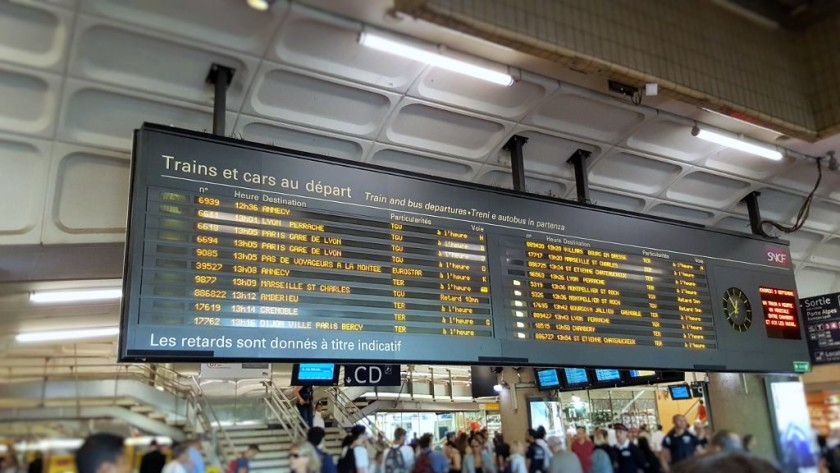
Aside from the scope to enhance your adventures by choosing beautiful journeys and destinations, there are 3 often overlooked practical considerations for using Eurail and InterRail passes that can make your travels more pleasurable.
(1) If you opt for booking discounted tickets, they will be train departure specific, and it will be your responsibility to be at the station on time.
Having to reach a station against the clock time and time again, in cities you don't know that well, isn’t fun when you are supposed to be on holiday.
But if you have a rail pass and will be taking a route with frequent trains, you can often simply turn up at the station when it suits you.
(2) The opportunities to take alternative trains can be a big plus when the trains aren't running smoothly on your travel dates.
I have arrived at stations to discover that trains are being delayed due to technical problems on a route.
Because discounted tickets are only valid on specific trains, the travellers with such tickets were usually having to wait, until the train they were booked on to departed at its revised time.
But with a rail pass, I've been able hop on the next train that's leaving, or make a last minute reservation on a train that hasn't been delayed, or even taken an alternative route avoiding the disruption.
(3) Using tickets for long end-to-end journeys with more than one change of train can have complications in the event of a train delay leading to missed connections, but with a rail pass you can de-risk taking such journeys.
If you have reservations on the train you are connecting into it, it’s likely that you’ll be able to swap them to a later departure.
In a worst case scenario, you might have to book a new reservation, but that will cost a lot less than having to re-purchase a train ticket.
The specific circumstances in which trains are delayed or cancelled, are irrelevant to the users of passes.
And this lack of relevance applies to every train on and end-to-end journey chain.
If need be rail pass reservations can be transferred to trains taking entirely different routes, thereby avoiding 'exceptional circumstances' which can close a route, such as landslides or flooding.
Those exceptional circumstances can now require ticket holders to re-book, despite the near certainty that last-minute tickets on the longer alternative routes will be incrementally more expensive.
Though a key exception to the ease of transferring rail pass reservations can be journeys by Eurostar from and to London - That's because only the most expensive types of ticket tend to to still be on sale for last minute bookings; and when that is the case the InterRail and Eurail reservations won't be available.
4: You can save on more than the trains:
You don't have to stick to the railway tracks when using Eurail and InterRail passes as they also provided for discounted travel on many boat services.
These trips on the water fall primarily into two categories:
- International ferry services including many Mediterranean routes and North Sea crossings; and
- Scenic lake cruises.
The rather wonderful Europe By Rail website has produced a guide on how to set sail with a rail pass.
Recent changes:
The most recent key changes to the reservation fees which Eurail and InterRail pass users have to pay on certain trains are:
(1) When travelling from June 1st to Sep 1st, reservations are now mandatory for rail pass users when using express EC and IC trains in either direction, for international travel between Germany and Austria, Belgium, to/from and through Czechia, Denmark and The Netherlands.
This matches the mandatory reservations that began to be applied to these routes in 2024, for travel by the ICE trains.
The charges are €6.50 in 1st class and €5.20 in 2nd class.
(Reservations were already mandatory on the express trains between Germany and France, Italy and Poland).
(2) Some of the reservation fees which used to be payable by distance are now charged at a flat-rate regardless of the length of the journey.
This is now the case when using rail passes to travel on:
- the TGV trains between France and Spain,
- the TGV Lyria trains between France and Switzerland
- the TGV and ICE trains between Paris and Germany
in effect the fees are now cheaper when taking journeys with 1st class passes on these train services.
(3) The same reservation fees which are charged for travel on the AVE trains in Spain and now payable on international journeys by these trains on these routes: Madrid ↔ Marseille and Barcelona ↔ Lyon and Toulouse.
So when travelling between Barcelona and destinations in France between Perpignan and Nimes, the fees for these trains are now less than 50% of the cost of taking the alternative TGV trains.
(4) End-to-end journeys in Switzerland between Interlaken and both Mürren and Wengen are now fully covered by Eurail and InterRail passes.
(5) A significant change which occurred in 2024, was a big increase to the reservation fees for travel in the sleeping cabins on Nightjet trains - which are applied regardless of whether rail passes or tickets are being used to make the journey.
These prices seem to have come down slightly in 2025, but they remain comparatively expensive.
(6) On the new generation of Nightjet sleeper trains, the same fees are now payable when travelling in a couchette or a Mini-pod.
So the price of making a rail pass reservation in a Mini-Pod has come down by more than 50% - Hence the difference in price between the sole occupancy of a mini-pod compared to a sleeping cabin, is now more than €300!
Improvements in recent years:
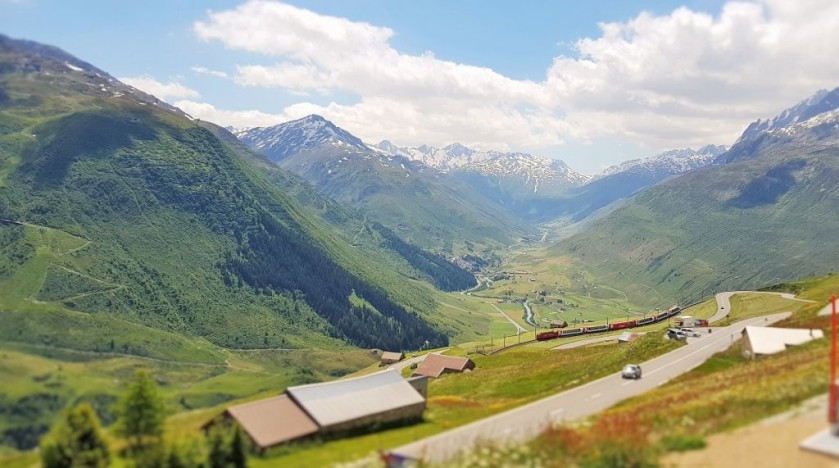
Previously decided against using a Eurail or InterRail pass? Well here are some FOUR key benefits of using these passes that have been introduced fairly recently.
(1) Eurail and InterRail pass now allow 'free' travel on MGB trains in Switzerland - very welcome if you want to travel across southern Switzerland.
(2) Linked to this is that Eurail and InterRail pass users now only have to pay the reservation fees on the fabulous Glacier Express - a saving of around 65% on total ticket prices!
(3) Similarly Eurail and InterRail pass users can travel on The Bernina Express by only paying the reservation fees.
(4) Flat rate rail pass reservations fees are now available on Eurostar trains; 2nd class = €30/38; 1st class = €38/43, this is usually cheaper than buying discounted tickets and can be 4 x less expensive than full price tickets.
(5) The other particularly welcome news back in 2019 was how both Eurail and InterRail passes can be used on overnight trains was made simpler.
If you travel on any overnight train, it only uses one day of your travel pass allowance and not two - you only have to enter your departure date on the pass.
Particularly welcome news if you're interested in the types of flexi- pass that are valid for a set number of travel days
Previously this only applied to journeys which commenced after 7pm - it was known as the '7pm rule'.
Please support ShowMeTheJourney
This second version of ShowMeTheJourney is exciting and new, so we are genuinely thrilled that you are here and reading this, but we also need your help.
We’re striving not to let anything get in the way of providing the most useful service possible, hence a facility has been set up with DonorBox which can be used to support the running costs and make improvements.
Instead of advertising or paywalls, your financial support will make a positive difference to delivering an enhanced service, as there’s a lot of ideas which we want to make happen.
So if you have found the info provided here to be useful, please go here to say thank you.
Alternatives to using Eurail and InterRail passes:
The other relevant travel guides:

Simon Harper
I wanted to share my passion for train travel and explain how anyone can take the fantastic journeys I have taken.

This is one of more than 100 train travel guides available on ShowMeTheJourney, which will make it easier to take the train journeys you want or need to make. As always, all images were captured on trips taken by ShowMeTheJourney.
This second version of ShowMeTheJourney is exciting and new, so we are genuinely thrilled that you are here and reading this, but we also need your help.
We’re striving not to let anything get in the way of providing the most useful service possible, hence a facility has been set up with DonorBox which can be used to support the running costs and make improvements.
Instead of advertising or paywalls, your financial support will make a positive difference to delivering an enhanced service, as there’s a lot of ideas which we want to make happen.
So if you have found the info provided here to be useful, please consider saying thank you.





















